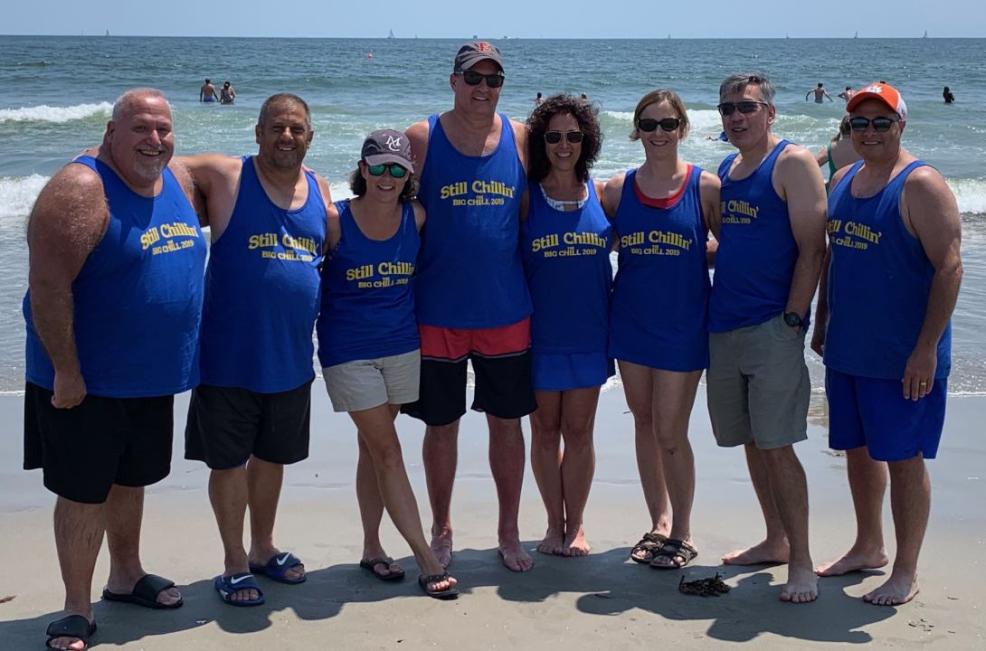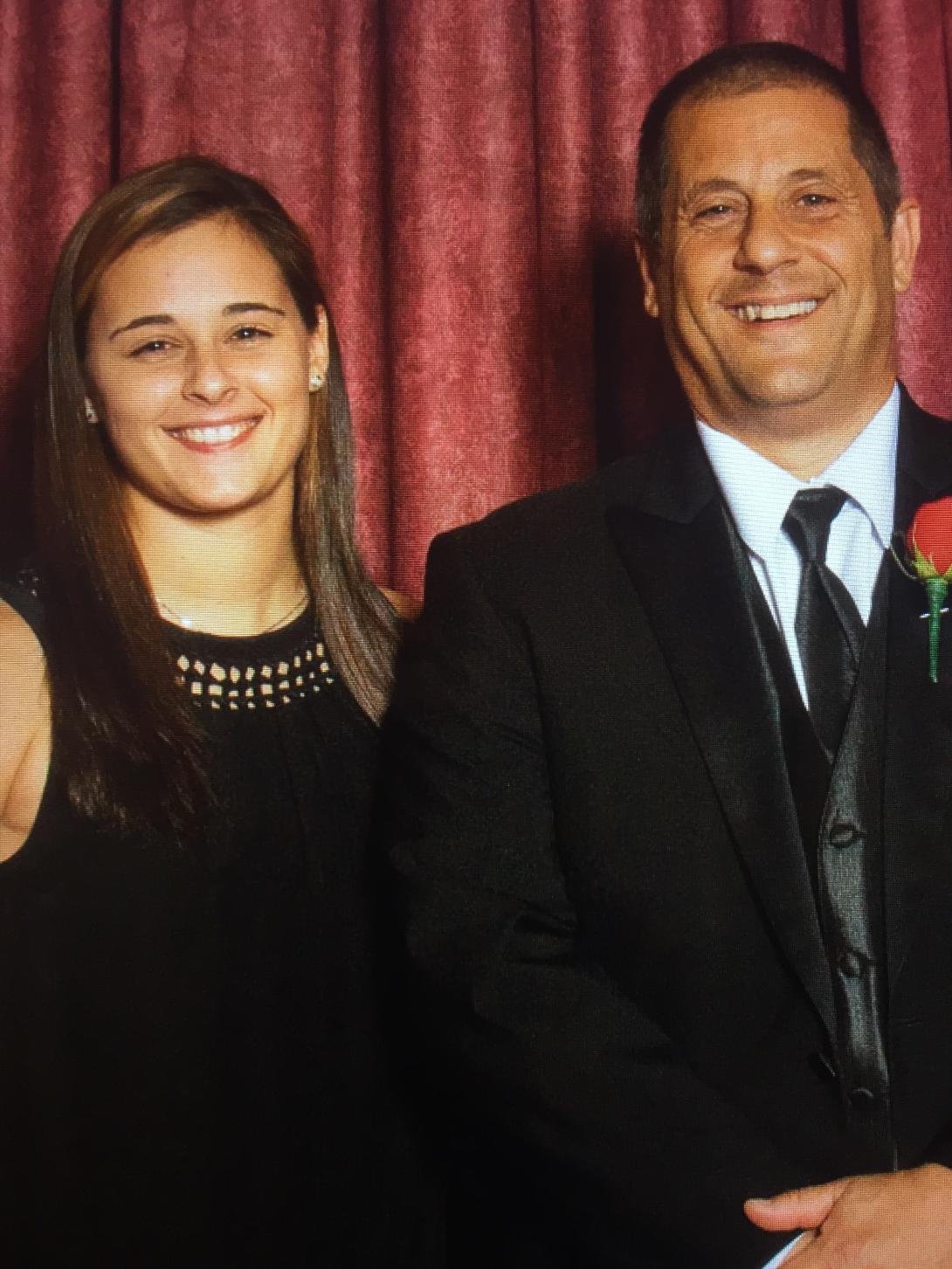Michael Salomone, 54, was riding his daughter’s single-speed bicycle to work in May 2017 when he first felt the knot on the back of his thigh.
“I asked my daughter, who was playing college basketball at the time, what I should do, and she said, ‘Just roll it out,’ So that’s what I did. And I’ll be honest with you,” he said, laughing, “It was a misdiagnosis.”
The knot on the back of his leg lingered all through that summer of 2017 while he worked as a manager at the Doubletree Hotel in Atlantic Beach, North Carolina, and, in his free time, played basketball in a rec league. The father-of-three wasn’t really worried about the knot because, in his mind, he just wasn’t giving it a chance to heal.
“I’m literally going seven days a week. So, obviously this little knot isn’t going anywhere,” he said, explaining his rationale for not getting it checked out by a doctor.
Finally, in November, Salomone asked a friend who was an athletic trainer to take a look.
“I asked him, ‘What’s going on back here?’ and he said, ‘That looks like a lipoma, (a benign fat deposit),’” recalled Salomone, “but he told me to get it checked anyway.”
So Salomone went straight to his primary care doctor.
“And the look he gave me,” recounted Salomone, “I’d love to play poker with this guy, because I knew something was wrong.”
The doctor suspected soft tissue sarcoma, and he ordered an MRI to map the tumor.
Sarcoma is a rare type of cancer that is divided into two groups: sarcoma of bone (osteosarcoma, chondrosarcoma, Ewing sarcoma) and soft tissue sarcoma, or sarcoma that grows in the non-bony connective tissues of the body. Soft tissue sarcomas are difficult to spot and diagnose, as they can grow anywhere in the body and often present — as Salomone’s did — as a mostly painless lump or knot that can be misdiagnosed as a lipoma. As the sarcoma grows, it can press on muscles, tendons and nerves, and cause swelling and pain. According to the American Cancer Society, by the end of 2020, an estimated 13,000 people in the United States will have been diagnosed with soft tissue sarcoma.
When the results of the MRI came back, Salomone was swiftly referred to a local cancer specialist.
“He told me, and this is a quote, that he’d like to ‘take a swing at it,’” said Salomone, repeating the expert’s words. “When stuff like this happens, you don’t want someone to just take a swing at it.”
He decided to look for another expert.
Salomone found the new-patient number for Duke orthopedic surgical oncologist Brian Brigman, MD, PhD, director of the sarcoma program at the Duke Cancer Institute, and read his MRI results out over the phone.
He was scheduled the following week for a consult with Brigman and Nicole Larrier, MD, MS, a radiation oncologist who treats adults and children with sarcomas and other conditions of the musculoskeletal system.
“The first time I met Dr. Larrier, she came in whispering, and telling me it was a very serious situation. Well, let me tell you something, I knew it was serious,” he remembered. “But I broke her. She’s easy to break, she’s an easy laugh. And whenever I see her now, I say to her, ‘Don’t be coming in here whispering, because then I know there’s something wrong. Just come on in here with – and excuse the language – your loud-ass self. This way I know I’m fine.’”







